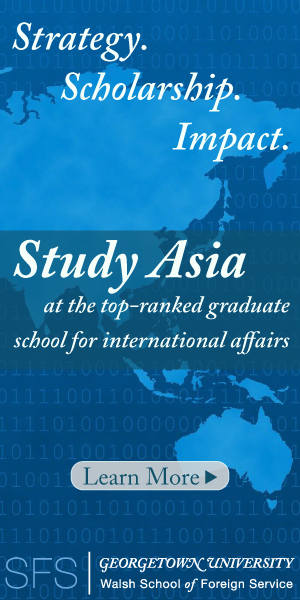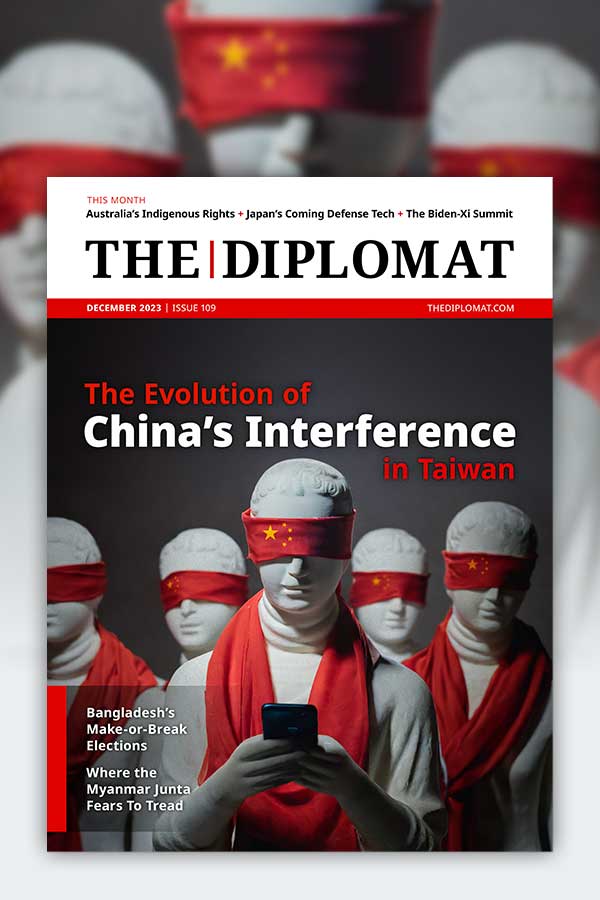| Welcome to the latest issue of Diplomat Brief. This week our top story explores the fate of human trafficking victims after they’ve been liberated from cyber scam centers. We also have an interview with the U.K. ambassador to Mongolia, Fiona Blyth. |
| Story of the week | ![[object Object]](https://thediplomat.com/diplomat-brief/2023/vol50/images/feature.jpg?v=1) | Security Southeast Asia’s Brewing Refugee CrisisWhat Happened: Ethnic armed organizations are gaining control over new territory in northern Myanmar – including areas once controlled by powerful criminal groups. The operations have had the result of freeing tens of thousands of people who were forced to work at cyber scam operations in Myanmar, bilking people around the world out of billions of dollars under pain of torture. But their nightmare isn’t over yet. Instead, “an unusual refugee crisis is beginning to emerge on the China-Myanmar border. Escapees aren’t trying to flee their country, but rather, desperately trying to get home. Many are being criminalized in the process.” Our Focus: “For the roughly 120,000 cyber slavery victims the United Nations estimates are trapped in Myanmar’s scam compounds, repatriation will be neither swift nor assured,” write journalists Lindsey Kennedy and Nathan Paul Southern, fresh off a trip to the area. Many of them are Chinese nationals, and their government is more interested in showing action by making mass arrests than supporting trafficking victims. “Many thousands of migrants and potential victims of trafficking [are] being apprehended or left stranded,” says Nima Tammadon, communications officer at the Asia and Pacific Office of the U.N.’s International Organization for Migration (IOM). Worse, dozens have reportedly been killed; around 100 Chinese nationals may have died in the crossfire during the siege of one cyber scam hub, Laukkai. What Comes Next: As Kennedy and Southern note, “All across Southeast Asia, trafficking victims rescued from scam compounds are frequently placed in immigration detention for months on end, where they may face criminal charges for working or crossing borders illegally, or worse, resale to other criminal syndicates.” While the current military operation is disrupting some cyber scam operations, the criminal syndicates behind the problem remain as well-financed and well-connected as ever. The risk is that they will shut down operations in one place only to reopen them in another – perpetuating the human trafficking crisis behind the cyber scams. Read this story |
| Behind the News | INTERVIEW Fiona BlythFiona Blyth, the British ambassador to Mongolia, on her host country’s biggest challenge in the next decade: “I think the biggest challenge for Mongolia is to stay true to its values. Mongolia took a bold step in 1990 to set out the kind of country that it wants to be, and that is a choice only for Mongolia. It’s not a choice for the U.K. It’s not a choice for other third neighbors or Mongolia’s eternal neighbors.” Read the interview |
| This Week in Asia | Northeast Asia Political Finance Scandal in JapanJapan’s ruling Liberal Democratic Party is embroiled in a deepening scandal involving unreported funds given to politicians – especially members of late Prime Minister Abe Shinzo’s powerful faction. The scandal, involving at least 500 million yen in unreported income, has ensnared high-profile figures like Chief Cabinet Secretary Matsuno Hirokazu (who was dismissed as a result) and former Olympics minister Hashimoto Seiko. The scandal comes as the Kishida government was already struggling with low approval ratings and public confidence. A full Cabinet reshuffle is expected in response – just three months after the last one. Find out more | South Asia Indian Supreme Court Upholds End to Jammu and Kashmir’s AutonomyIn 2019, the Modi government announced the end of Jammu and Kashmir’s special status, revoking Article 370 of the Indian Constitution. The erstwhile state was also divided into two parts (J&K and Ladakh), both downgraded to the status of a union territory. The move sparked a massive backlash in Kashmir, especially as it was done by the central government during a time when J&K’s own state assembly was mothballed. India’s Supreme Court just upheld the ruling, dealing a major blow to Kashmiris’ hopes for a return to at least partial autonomy. Find out more | Southeast Asia China-Vietnam Relations Gets an UpgradeThis week, China’s President Xi Jinping embarked on a two-day state visit to Vietnam, just his fourth foreign trip this year. During the December 12-13 visit, Xi held talks with a number of senior officials, including Nguyen Phu Trong, the chief of the Communist Party of Vietnam (CPV). The pair announced Vietnam’s accession to Beijing’s “community of common destiny,” a rarefied diplomatic status that it already enjoys with Myanmar, Laos, and Cambodia. Coming on the heels of the Vietnamese government’s significant diplomatic upgrades with the United States, South Korea, and Japan, the relationship boost underscores the fraternal ties between the two communist-ruled nations, while maintaining Vietnam’s omnidirectional foreign policy. Find out more | Central Asia Tajikistan’s Divergent Path on AfghanistanDushanbe is the strongest critic of the Taliban in Central Asia. Tajikistan continues to host dialogues featuring a diversity of Afghan voices, including the most recent Herat Security Dialogue, unable to be hosted in its namesake city for the second year in a row. At the same time, Tajikistan had made some conciliatory moves – such as the announced re-opening of border crossings. But announcements aside, the reality on the ground remains tense and frosty between the two countries. Find out more |
| Visualizing APAC |  | Source: SIPRI Between 2016 and 2022, Thailand received more arms in terms of value from China than from its treaty ally, the United States. See the full picture |
| Word of the Week | Politics कांग्रेस मुक्त भारतCongress-mukt Bharat, Hindi for “a Congress-free India,” is a common campaign slogan for the ruling BJP. Find out more |
|  |

![[object Object]](https://thediplomat.com/diplomat-brief/2023/vol50/images/feature.jpg?v=1)

